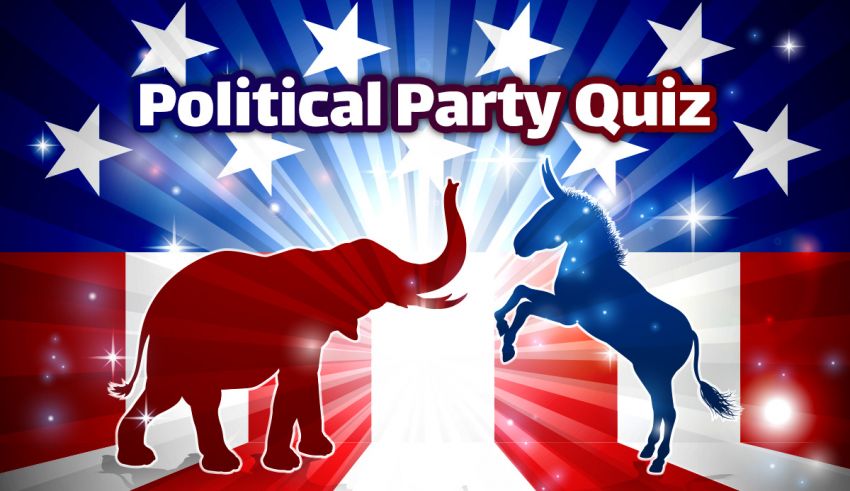
The Political Party Quiz Explained
It’s a 20-question test to analyze your political identification through your views on social matters.
No right or wrong answers are there in the test. So, unlike a US president’s quiz, you should pick the options that align with your political beliefs.
A political typology quiz is the most accurate way to guess one’s party.
But based on statistics, there is a 97% chance you are either a Democrat, Republican, or Independent (also known as non-affiliated).
Data by Gallup
| Political Party | Popularity |
| Independent | %41 |
| Democrat | %31 |
| Republican | %25 |
| Other | %3 |
3 Factors That Determine Your Political Party
According to USHistory.org, family, gender, religion, race, ethnicity, and region shape your political identification. But you could put all of them in three broader categories: beliefs, needs, and deeds.
#1. Beliefs.
The word “politics” is a synonym for “beliefs.” So, no doubt, ideologies stick people together in political groups. You will likely align with parties that promote your values or at least respect them.
#2. Needs.
Political expectations can contribute to your choosing a specific party.
The working class, for example, often leans towards the Democratic party since the platform acknowledges their needs. However, higher-earning Americans ($75,000 to $99,999) are more likely to register with the Republican party.
#3. Deeds.
Specific actions and decisions, such as gun ownership, can affect or determine one’s political party.
Recent polls show that Americans against gun control laws align with Republicans. Contrarily, people against gun ownership register with the opposing party, the Democratic.
Why You Need a Political Party Quiz
The U.S. has over 420 political parties. So, understandably, it’s challenging to pick one representing your beliefs. But a genuine quiz could help with that.
You may need a political party identifier for two reasons: 1) Voting registration requirements and 2) Benefitting from your political right.
Party Registration Is Required for Closed Primary Elections
According to the U.S. Government, registering with a political party is not obligatory during an open primary or caucus. But some U.S. states mandate it during closed primary elections.
When filling out the voter registration form, you are specifically notified: “If you choose “No Party/None,” you may not be able to vote for some parties’ candidates at a primary election for U.S. President or a party’s central committee.
Independent Voters Surrender a Political Right
In his essay on independent voters, Steffen Schmidt, the Lucken Endowed Professor of Political Science at Iowa State University, writes, “When voters choose to be “independent,” they forfeit their chance to pre-select who their ultimate choice for all offices will be in November when the general election takes place.”
So, it makes sense to ask yourself, “Am I a Republican or Democrat or Independent?” because the answer clarifies how you will make the most of your political rights.
Tips on Choosing the Right Party
The following are four tips by EasyVoter.org that could help you select the right party.
· Eliminate options by general views.
To choose a party, compare the group’s opinions on broad social issues such as abortion, gun ownership, police brutality, systematic racism, school shooting, etc.
Each U.S. political party endorses a specific view on social matters. When it comes to abortion, for example, Republicans are pro-life, meaning they don’t support abortion laws. Democrats, on the other hand, believe in Roe v. Wade.
· Check the parties’ top priorities.
U.S. political parties’ manifestos often contain a section explaining the group’s main concerns—or goals. Checking it out could give you an idea of what political party you want to be a member of.
With Democrats, for example, top priorities are expanding jobs through economic reinvestment, improving access to affordable health care, and ending wars in Iraq and Afghanistan.
Compare them to that of the Republican party: Promoting an economy that creates new jobs, reforming education and pension systems, and protecting taxpayers.
· Read parties manifestos.
A quick way to answer questions like “What political party am I?” is by reviewing the parties’ platforms. The Democratic party, for example, publishes a new platform every four years, explaining its goals and plans.
· Change your party if you are not happy.
You can always change your voter registration, updating your political party affiliation. So, although you need to pick your party consciously, you don’t have to worry about the consequences—because there’s always a legal way out.
The Quiz Covers More Than 3 U.S. Political Parties
The debates are often between Democrats and Republicans. But the U.S. has many more political parties: Reform, Libertarian, and Green come to mind.
To finetune the political party quiz results, we cover the main groups—and their ideologies. So, compared to other alternatives, you are more likely to discover the best political party for your views as opposed to getting a simple Democrat or Republican label.
5 Major US Political Parties You Should Know
You can’t make up your mind without knowing all the main parties in the U.S. Your options are broader than Democrats and Republicans—although you might have to choose one of their presidential candidates.
The following list of parties could help you identify where you stand.
Democratic
The party’s priorities are providing Americans with quality education, health care, and jobs. But Democrats also value women’s and minorities rights.
Republican
Essentially, Republicans prioritize reforming several aspects of America’s social life: Health care, education, and the economy. Their manifesto mentions, “The Republican Party is committed to improving our quality of life in every part of California.”
Green
The Green party prioritizes “peace, social and economic justice, nonviolence, grassroots democracy, respect for diversity, and women’s rights.” As the name suggests, clean energies and environments also play a significant role in their ideology.
Libertarian
“If you’re socially tolerant and fiscally responsible, you’re a libertarian,” suggests the Libertarian party’s manifesto. Individual liberty, shrinking government, and free trade and education are among the motives of this political group.
American Independent
Currently one of the largest parties in the U.S., American Independent believes in “liberty and justice for all under God.” Of significant importance are strengthening and protecting the right to live in the party’s manifesto.
Remember: Political Typology Is a Spectrum
You could vote for a Republican presidential candidate and oppose the abortion ban. It’s possible to endorse a Democrat party candidate and support the gun ownership laws. In short, you don’t have to be on either end of a political spectrum to align with a specific party.
So, please take the results lightly and don’t use them to discriminate against any groups.
Disclaimer
QuizExpo does not endorse any of the political parties mentioned in the quiz. The following are independently curated questions with no favoritism involved.





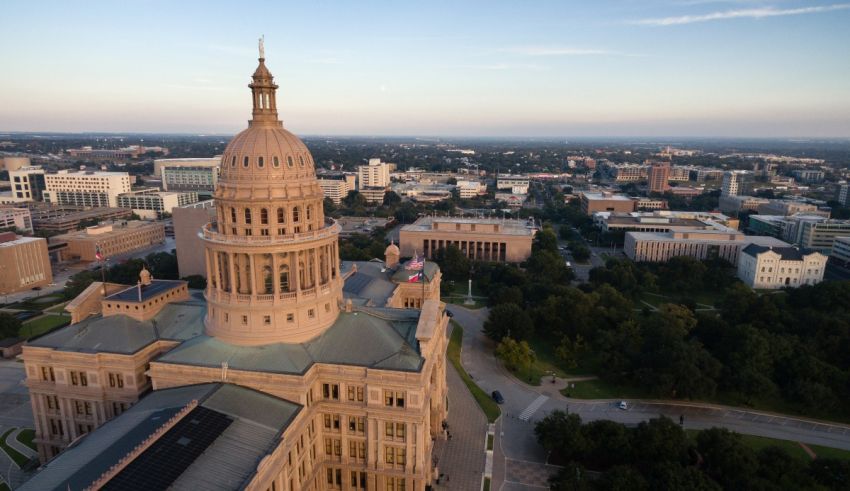
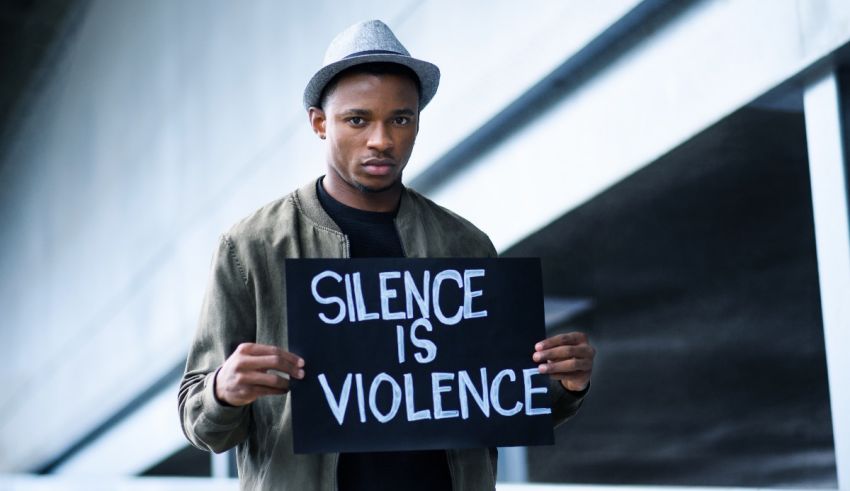
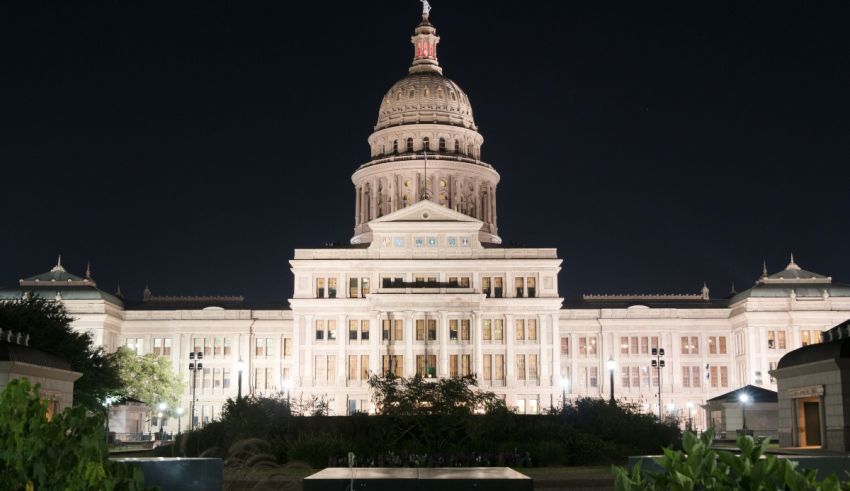





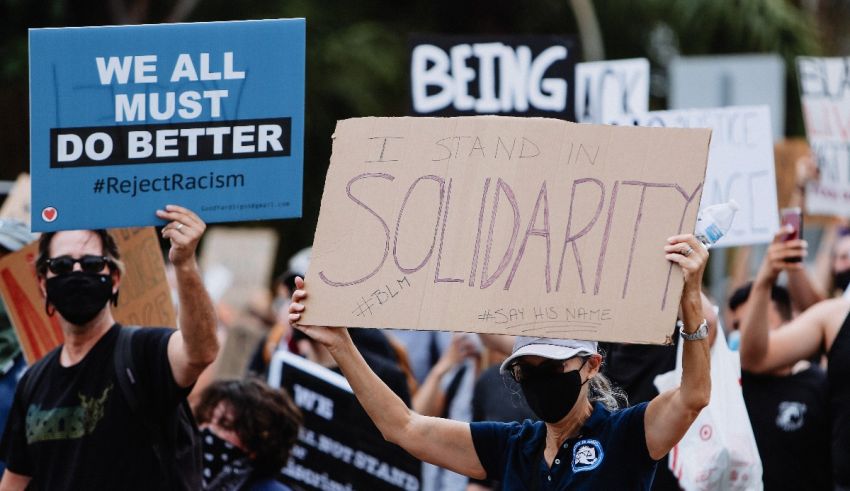







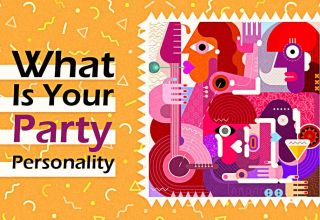










September 2, 2024
Curious